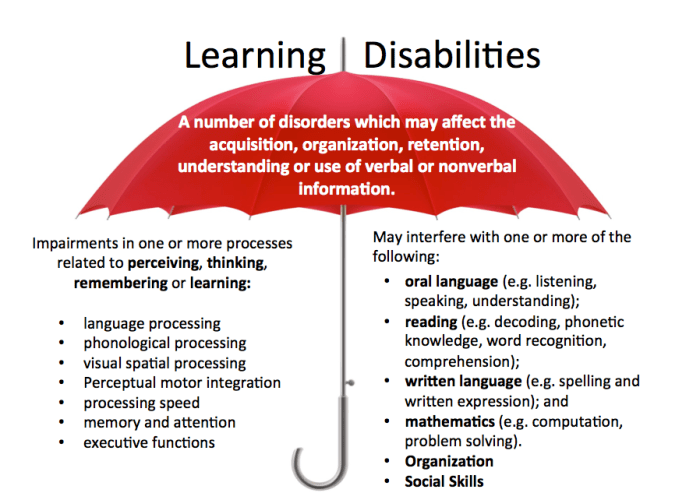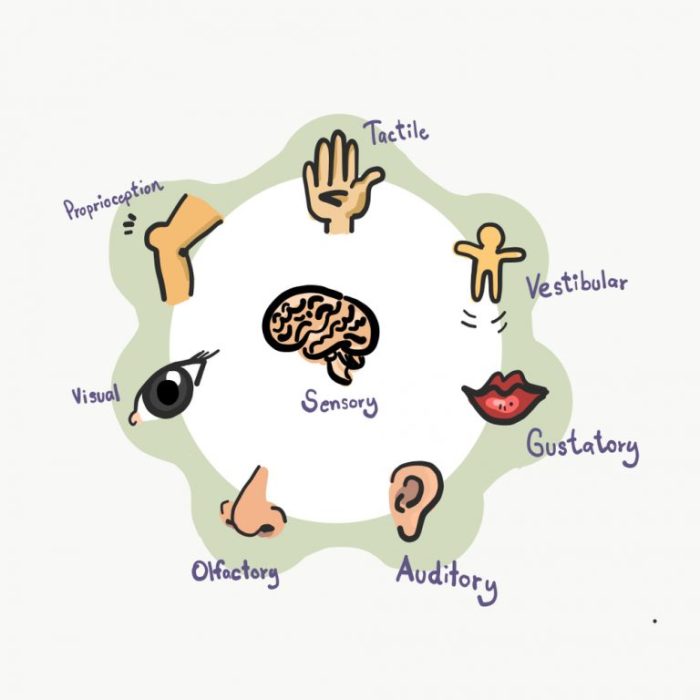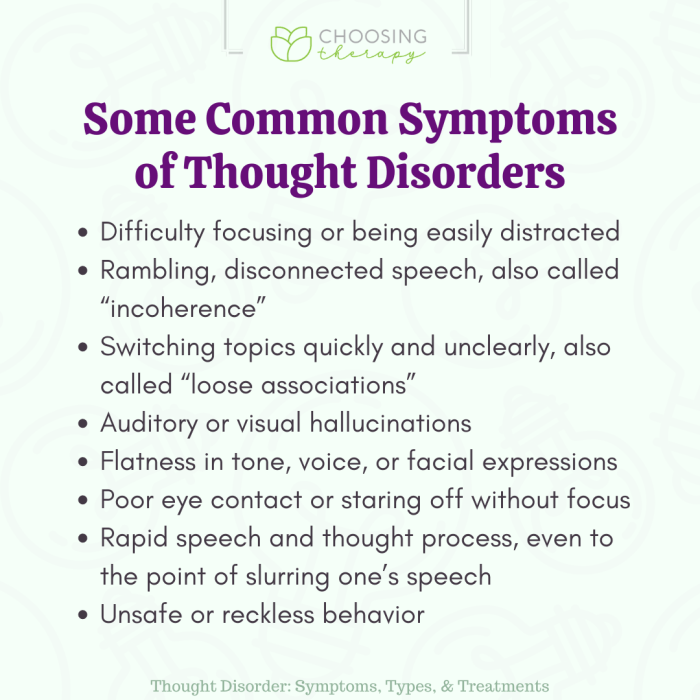Gross impairment in thought processes or communication examples – Gross impairment in thought processes or communication represents a significant challenge, affecting an individual’s ability to comprehend, express, and engage in meaningful interactions. This article delves into the multifaceted nature of these impairments, providing examples, exploring underlying causes, and discussing diagnostic and treatment approaches.
Impairments in thought processes can manifest in disorganized speech, incoherent thoughts, and impaired comprehension, while communication impairments encompass a range of difficulties, including aphasia, dysarthria, and apraxia.
Impairment in Thought Processes

Thought processes refer to the mental operations involved in acquiring, processing, and using information. Impairment in thought processes can disrupt these operations, leading to difficulties in thinking, problem-solving, and decision-making.
Types of Thought Process Impairment
- Disorganized thinking:Thoughts appear fragmented, illogical, or incoherent.
- Impaired problem-solving:Difficulty in identifying problems, generating solutions, or making decisions.
- Impaired judgment:Inability to make sound judgments or evaluate situations appropriately.
Causes of Thought Process Impairment
- Mental health conditions (e.g., schizophrenia, dementia)
- Neurological disorders (e.g., stroke, brain injury)
- Substance abuse
- Aphasia:Difficulty in understanding or producing language.
- Dysarthria:Impaired speech production due to muscle weakness or incoordination.
- Social communication disorder:Difficulty in social interactions, including understanding social cues and engaging in appropriate conversations.
- Neurological disorders (e.g., stroke, Parkinson’s disease)
- Hearing loss
- Developmental disorders (e.g., autism spectrum disorder)
- Psychological assessment:Tests cognitive abilities, language skills, and social communication.
- Medical evaluation:To rule out underlying medical conditions (e.g., neurological disorders).
- Criteria for severity:Determined based on the extent of impairment and its impact on daily functioning.
- Cognitive rehabilitation:Exercises and strategies to improve memory, attention, and problem-solving.
- Speech therapy:Techniques to enhance speech production, language comprehension, and social communication.
- Medications:To manage underlying mental health conditions or neurological disorders.
Impairment in Communication

Communication involves the exchange of information through verbal, nonverbal, and written channels. Impairment in communication can affect the ability to express oneself clearly, understand others, or engage in meaningful conversations.
Forms of Communication Impairment, Gross impairment in thought processes or communication examples
Causes of Communication Impairment
Examples of Gross Impairment
| Type of Impairment | Examples | Severity | Impact |
|---|---|---|---|
| Disorganized speech | Incoherent rambling, word salad | Severe | Makes communication nearly impossible |
| Incoherent thoughts | Jumping from topic to topic, making no sense | Moderate to severe | Hinders problem-solving and decision-making |
| Impaired comprehension | Unable to understand simple instructions or follow conversations | Mild to moderate | Limits social interactions and daily functioning |
Diagnostic Procedures

Diagnosing gross impairment in thought processes or communication involves a comprehensive evaluation:
Treatment Options

Treatment for gross impairment in thought processes or communication aims to improve cognitive functioning and communication skills:
Quick FAQs: Gross Impairment In Thought Processes Or Communication Examples
What are the common symptoms of gross impairment in thought processes?
Disorganized speech, incoherent thoughts, impaired comprehension, difficulty following conversations, and problems with memory and attention.
What are the potential causes of communication impairment?
Stroke, traumatic brain injury, neurodegenerative diseases, and developmental disorders.
How is gross impairment in thought processes or communication diagnosed?
Through a comprehensive evaluation involving psychological assessments, medical examinations, and observation of the individual’s behavior.